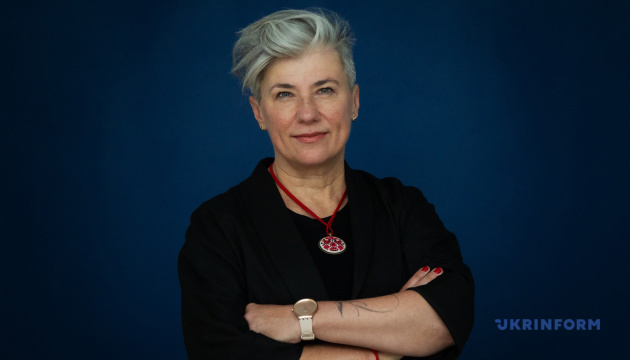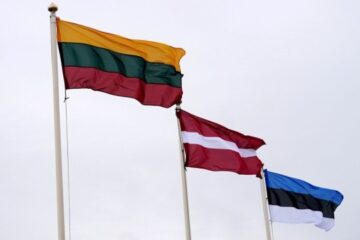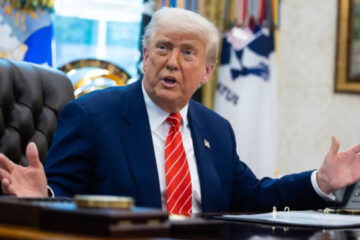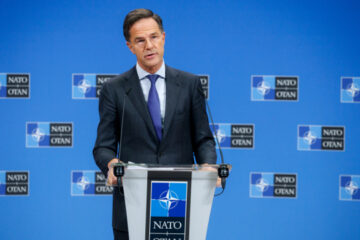One of the brightest representatives of the international diplomatic corps in Ukraine, Canadian Ambassador Natalka Cmoc, visited Ukrinform this week on the day when King Charles III arrived in Ottawa, urging the country to remain “strong and free.”
Indeed, it is a strong and free Canada that has been supporting Ukraine diplomatically, financially, and security-wise since the very start of Russia’s aggression against Ukraine. Since the full-scale invasion in 2022 alone, Canada has provided Ukraine $20 billion in assistance, including $4.5 billion in military aid and $12.4 billion in direct financial support. The latter figure is the largest per capita among all G7 members of the G7, which Canada currently chairs.
During the conversation, the ambassador spoke about her country’s position within G7 on the ongoing war, the vision of the new government regarding the links between Canada’s security and that of Europe and Ukraine, and a mutually beneficial way to strengthen the protection of sovereignty on both sides of the Atlantic. We also talked about the priorities in financing projects in Ukraine, a CUFTA deal, and prospects for cooperation between defense and energy companies.
However, the ambassador’s special focus is people. It is about the Ukrainian men and women that she spoke with most passion, including the “Evil Mavka” tattoo in support of the women’s resistance movement in the occupied areas.
A large part of the interview was recorded in Ukrainian, the language of the ambassador’s grandparents.
[embedded content]
INVESTING IN DEFENSE TOGETHER – WIN-WIN-WIN SITUATION FOR CANADA, CANADA, EUROPE
– You have previously stated that Canada, as a G7 chair, stands categorically against Russia being allowed back into this format. Does this position remain unchanged now that we hear some voices calling for a less harsh tone towards Russia?
– Nothing has changed. Canada, as you know, recently had elections, and it was very clear that Ukraine was a bipartisan issue. So, you have still the support from Canadians from coast to coast, it is still supporting Ukraine, and that has not changed. I think, it also was evident with our new prime minister, Mark Carney, when he became the new leader. Before the elections he had a phone call with President Zelensky, I was on that call listening in, and he invited President Zelensky to the G7 Summit. so he was confident that no matter who would win the elections that was not going to change. So, I think that support is very clear.
For Canada, Ukraine is a priority because Canada understands full well our geostrategic economic situation depends on the security of Ukraine. So, we see Ukraine’s security is Europe’s security. We want to make sure that we’re supporting both Europe and Ukraine to be successful economically and being able to defend its territory and sovereignty.
– And to continue on the issue of G7. We have heard reports of the signals coming from the United States that the very notion of continued support to Ukraine should not be part of the final declaration of the upcoming G7 Summit. How does Canada react to those signals? Do you think this is a must to retain this position in the final document?
– I think moral support is crucial here. It’s foremost important for Canada in the G7. As you know, the second day of the G7 Summit, June 17, will have a component absolutely focused on Ukraine. I think it’s even titled “Sovereignty of Ukraine”, so that is a signal that support to Ukraine is important, and that’s in two ways. One is to continue to support Ukraine and the second one, which I think is equally important, is to continue pressure on Russia because we want the ceasefire to be successful. And a successful ceasefire means that it’s respected on both sides. If the ceasefire is not respected, then we have made public that we expect firmer, harsher sanctions to be put in place, and I’ve heard that sanctions could and should be targeted towards oil caps, as well as shadow fleets, so I think that is a very important.
What I think you’re also hearing is that this is already moving away from a strictly donation conversation more to an investment conversation. That’s including what’s been called the Danish Model. Many countries have signed on to that, and Canada has, too. We have already signed on $100 million to support drone manufacturing, and so on. So, we are looking to partner more and more with Ukraine and Europe for the defense of Ukraine and Europe, because we feel this will also be our defense. So it’s a win-win-win, meaning Canada, Ukraine, and Europe, if we invest together in all of our defense.
– To wrap up the topic of what the G7 format, do you have high hopes that unity will remain in place on the Ukraine issue during and after the summit?
– I think, unity in terms of our values, unity in terms of maintaining rule of law, the rule order, justice system, and in terms of investment climate. So, we all agreed on that. Also, in terms of the importance of agreements including trade agreements, so I think there’s going to be a lot of work there. And as I mentioned earlier, I think in terms of how we look at investment into our security.
So G7, I think, is always being primarily an economic conversation, how these countries come together to ensure security, economic security from a geopolitical stance of the world. So, yes, to answer your question, I think that goes without saying.
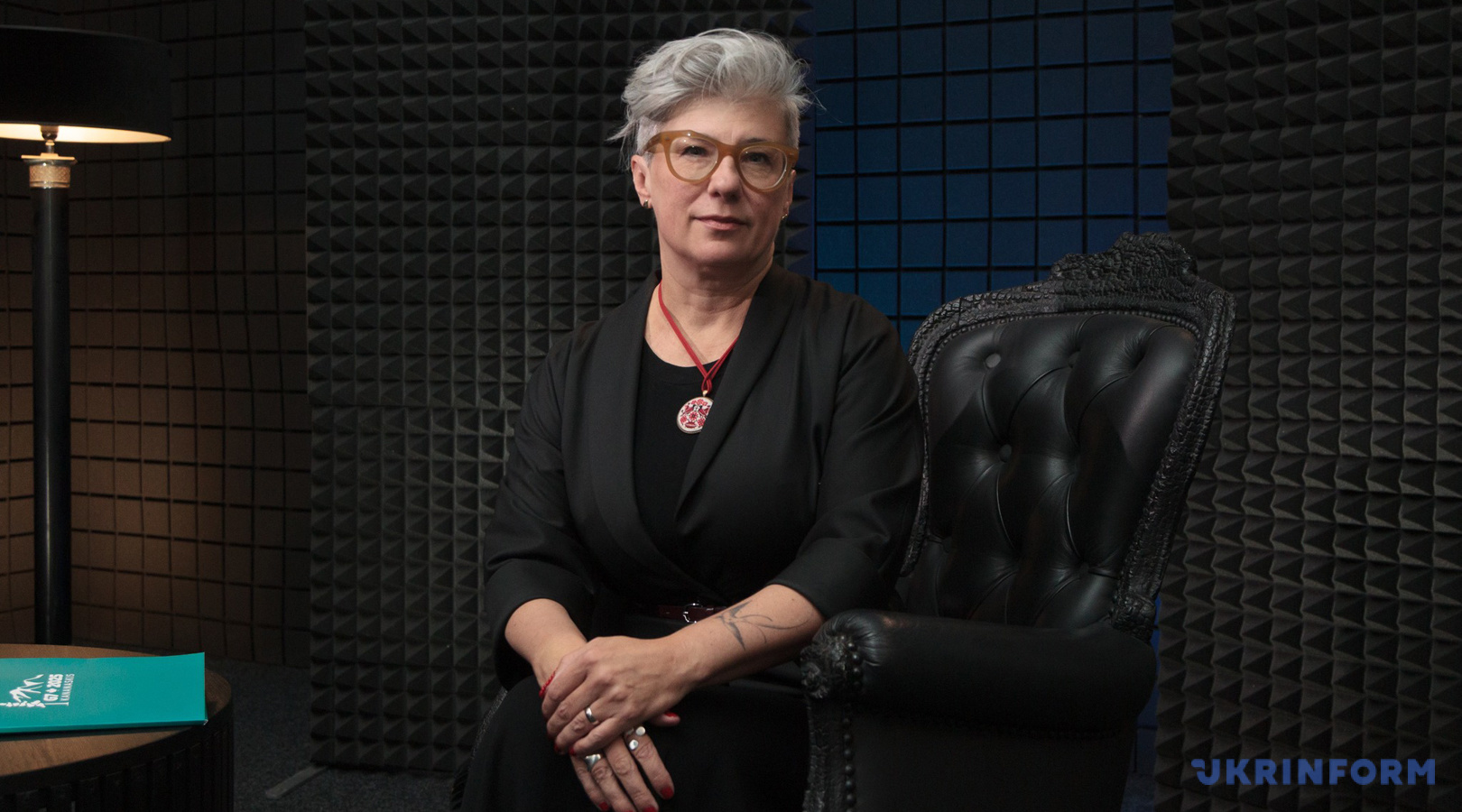
CANADA IS ADAPTING TRAINING OF UKRAINIAN SOLDIERS DEPENDING ON CURRENT NEEDS
– We see that European nations are reassessing their place and role in maintaining security in the region. How does Canada see its role, while located across the ocean, in helping Europe and helping Ukraine in particular, in this regard? Does your government plan to be more proactive to this end, or maybe some new forms of contribution to this security are being developed?
– As you know, we have a new prime minister, a new government, and a speech from the throne is only today, and in fact, it will be King Charles himself who will be delivering that speech. So, along with everyone else, I’m looking forward to hearing what will be part of that speech, but regardless of what is going to be committed, we do know that already Canada is committed to continue controbuting in the sphere of European and Ukrainian security because we see it as a close link to our own security.
Canada has had our operations in Ukraine as early as 2015, I think we were the first ones to be here supporting the training. So, after we had rejected any justification of the illegal annexation of Crimea, we responded by having military training here in Ukraine, so that was early 2015.
– And you were involved in the setup of that operation.
– Yes, I was part of helping set that up. We’ve now had a 2.0 version of Operation UNIFIER, which came with the full-scale invasion, and we’re continuing it. We have already trained over 44,000 Ukrainian military and security forces, and we’re very proud of that. We continue to work with the Ukrainian Armed Forces, with the Ministry of Defense here in Ukraine and looking at ways on how we adjust and adapt to make sure that we’re supporting Ukraine to meet the current needs. And it’s a win-win here as well because, as you’ve mentioned, the war has been going on for a while now, and the full-scale invasion has challenged Ukraine to adapt because it had no choice, but Ukraine has been keeping its front line relatively stable.
And we’ve seen immense advances in terms of technology, whether it’s drone and so on. So, we are learning from Ukrainians as well because we understand that war is changing, hybrid war is changing, the disinformation aspect of the war is very critical to understand and be able to deal with. So, these are all areas that Canada is also paying attention to and is an important partner to Ukraine.
AGREEMENTS ARE EXPECTED TO BE SIGNED BETWEEN UKRAINIAN AND CANADIAN DEFENSE FIRMS
– Maybe you could dwell a little bit more on the news or any announcements around Operation UNIFIER? And also you spoke about the Danish Model being accepted by more countries, including Canada. So maybe some other technology, some other weaponry besides drones is being eyed by your defense industry to invest in Ukraine?
– I don’t know the details, but I do know that Canadian defense companies do travel here for various conferences. Right now. I think CanSec is being held in Canada. There are a lot of Ukrainian defense companies in Canada right now. I’ve seen the list of companies that they are hoping to meet with. So, I’ve seen Ukrainians going to Canada with very clear objectives of who they want to meet and what technologies they want to work with. I believe that there are going to be many agreements signed either at CanSec or shortly after that will benefit the companies in a lot of areas, joint ventures and so on.
I’m pretty confident of that, and same with the energy aspect. I think this is also about armored vehicles, I know that, things are adjusting quite a lot. Canada has donated quite a few, and I know that Ukrainians are also interested in that. But Ukrainians themselves, from what I understand, have also developed in this area quite a bit. So, like I said, coming together and bringing the expertise and innovation together can only lead to better models that will meet the needs of this evolving war.
– Any numbers in terms of personnel training that you’re aware of?
– I think it’s just being negotiated now what that’s going to look like, but as I mentioned, it’s a commitment that Canada is meeting to continue working on the training and mentoring aspects.
UKRAINIAN TECHNOLOGIES COULD BE USEFUL FOR ENSURING ARCTIC DEFENSE
– Speaking of the security situation in a wider sense, we see that Russia has been obvious about its ambitions in the Arctic, and we’re seeing increased attention from the White House to that region. How would you assess the current security situation and security challenges in that region?
– The Arctic has been a priority for Canada in terms of Arctic security. We see the same threats, but we’re not alone. There’s also other Nordic countries that are working together. There’s the Arctic Council. So there, we understand that we need to maintain security in the Arctic. And also we understand from an environmental perspective that it needs to be protected. An unhealthy Arctic will impact global environment as well. So securing the Arctic is going to be important and, again, some of the technologies that Ukraine is developing, I think, will be very useful in terms of the Canadian Arctic and protecting the Canadian Arctic or everyone’s Arctic, including underwater drones, and so on.
– Perhaps, surface drones as well?
– Probably yes.
CANADIAN HUMANITARIAN SUPPORT IS VERY FLEXIBLE
– Back to supporting Ukraine… Are there any definite numbers that you can comment on in terms of Canadian budget and the expenditures that may be laid down for supporting Ukraine in the upcoming period?
– No, we’re not going to hear news on our budget for another few months, but until now, however, we’ve committed $20 billion since 2022. And that’s 20 billion in all spheres. We still put a lot of emphasis on humanitarian support, and we make sure that our humanitarian funding is very flexible so that it can adjust based on what the needs are. So it’s not linked to specific activities because we understand that humanitarian situation in Ukraine is not going away. It’s a very serious issue. So, that’s one aspect.
Development programming is also a very important priority for us, and we spend a lot of that funding supporting the various aspects of the national government. We’re expanding more support to veterans affairs, for example. We also support local administrations because we want to support Ukraine in its decentralization policy. We understand that that’s important. In Canada, we also have different jurisdictions responsible for different areas. We respect that and understand that, and empowering the local administration is very important, especially in terms of inclusion. It’s making sure that women are at the decision table, veterans are at the decision table. It is a very important part of our work. There’s also military assistance in terms of donations and also Investment.
CUFTA is an important tool in both Ukraine and Canada to encourage more private investment because everyone has recognized, including the G7, that we need to figure out how to leverage the private sector more. So the best way to do that is by attracting private sector, including private sector from Canada.
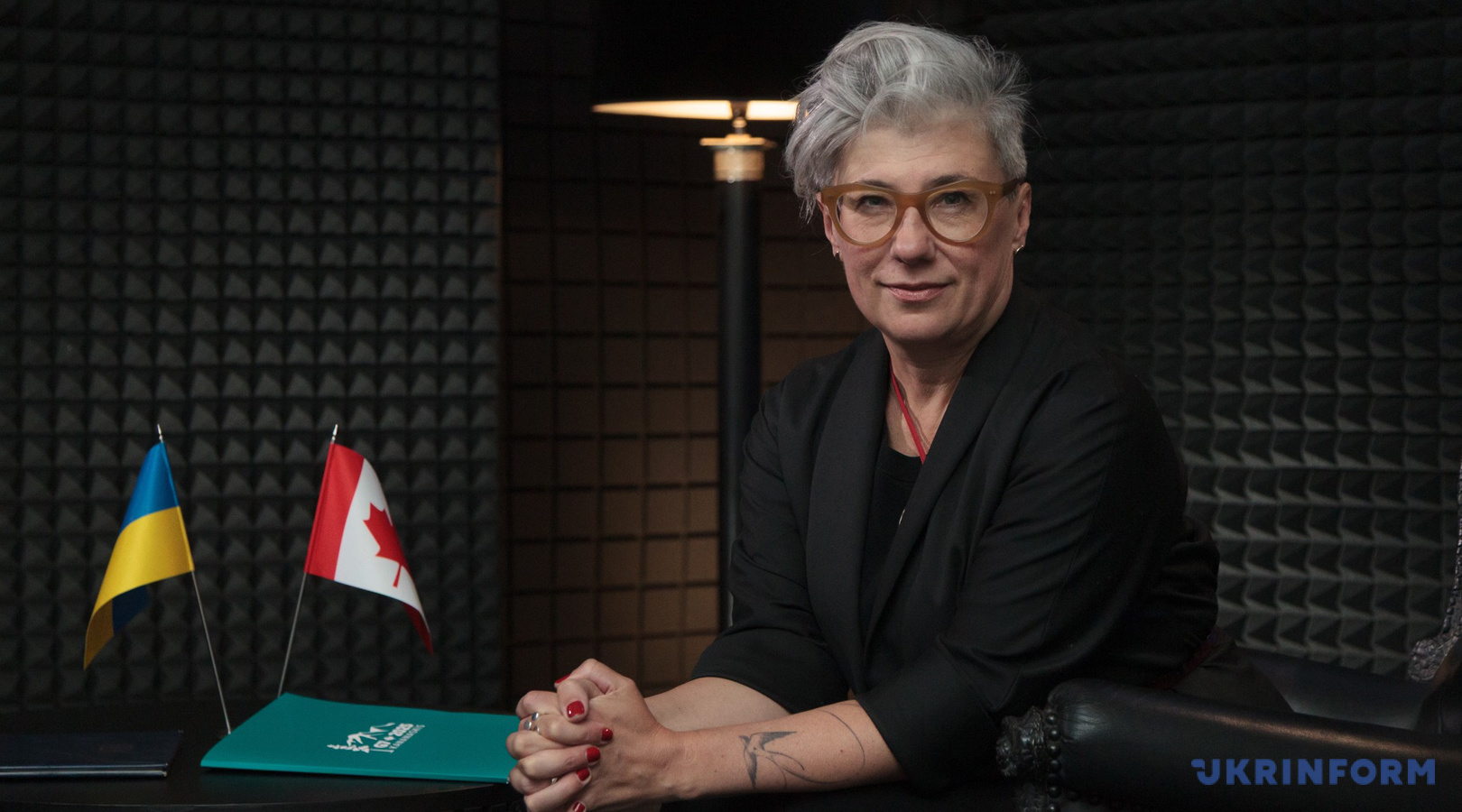
UKRAINE AND CANADA ARE WORKING TO DO MORE WITHIN CUFTA
– By the way, could you share some particular success stories of the recent period around CUFTA?
– I think what is being done is exploring what more could be done in terms of those relationships. I know that every year, there’s at least 15 energy companies that come to the Warsaw Energy Conference, and they are looking at ways to support everything around the drilling aspects, everything from that technology to production and distribution. These are active conversations that are ongoing between the various businesses. I think a very important piece for Canada has been the MoU between the government of Ukraine and the government of Alberta, which is where there’s a very strong oil and gas sector for Canada. And I know that there’s ongoing conversations on how they can work closer together. And for Canada this is going to be critical because Canada is looking at ways to diversify its trade.
We’ve been heavily dependent on the U.S, our U.S partner. That will not change, they will always be an important partner to Canada, if not our most important partner. However, Europe is now obviously our second most important partner, and we are going to be looking at ways to support that. And I think we’re well placed to do that, because for Europe’s security it means energy security, and those are ongoing conversations between Europe and Canada on how we can support Europe’s security and energy.
RUSSIAN AN-124 CASE COULD BECOME A PRECEDENT
– Another part of important funding for Ukraine that’s been getting a lot of press recently is Russian assets – be they frozen or immobilized. Canada was the first nation that proceeded with actually seizing Russian assets to have them handed over to Ukraine. And we’ve heard some news about the developments around a Russian An-124 cargo plane that remains grounded in Canada. Any news in that regard?
– I believe there was a court case in Ontario very recently to start the process to return the cargo plane, but there’s a period of time from what I can understand that others can step forward to make the case of why this should not occur. So, where in that period right now, so it’s in the court case, but I think it’s moving along in that direction. I think it’s a very important case that everyone is watching because it’s going to be potentially a precedent for others.
But I’d like to also point out what the G7 has done in terms of the $50 billion loan. It’s committing between 2025 to 2026 that $50 billion will be loaned out to Ukraine against the proceeds off the frozen assets in Europe, and Canada has really disbursed half of it and will disburse the other half before the end of that term. So, Ukraine will have $50 billion from the proceeds to defend itself. But I the conversations about the frozen assets are ongoing, and I think it’s going to continue being a topic of conversation for the G7 included.
– As part of those conversations, some voices are calling for the immediate seizure and hand-over of those assets to Ukraine to cover the immediate needs, and some voices have grounds to explain that it’s better to use those assets, the proceeds from those assets, as a continued flow of money to Ukraine for the longer period, and then potentially also use that money as part of reparation talks when the war is over and when Russia has to actually pay the cost, to repay for what’s been destroyed in Ukraine. Do you share the opinion that that this money should better be kept in foreign jurisdictions and proceeds be handed to Ukraine rather than the option to just seize all that money and give it to Ukraine now?
– These are very difficult questions to answer. I think an economist would have to figure out which would lead to the most amount of money and the most flexibility for Ukraine. Because what I do agree on is that it’s important to have Russia account for its crimes and be responsible for reparation as well as rebuilding. But I do understand that Ukraine is also interested in using these funds in order to be able to defend itself. So, I think these are all very important debates, but at the end of the day, I would be supporting the one that would ensure that Ukraine has the most flexibility and that those aspects are covered through Russia being able to pay for the crimes it’s committed and to pay for the damages it’s caused in reparation as well, as well as to the victims. Let’s not forget the people. I think it’s the most important part, so I’m always thinking back of all the people.
Even yesterday, I met with a group of women whose children have died at the front as soldiers with the Ukrainian Armed Forces. They come from the occupied terriroties, including Mariupol, Kherson region… They’ve lost everything, some say their home doesn’t even exist anymore because it’s been destroyed. One of the women said her house was destroyed as a result of the Kakhovka dam blast, and others have mentioned that they now have Russian families living in their family homes. So, I think, whatever decision is made, we need to think about the people who are most affected, and perhaps, they should have a say in how the funding is used.
– You are really active in your communication with the Ukrainians here in the country. We see your presence, how you speak with people and hear them out. So maybe we could switch to Ukrainian, the language that’s so dear to you, to discuss some more topics?
– Sure, but please pardon my mistakes if I make any.
UKRAINIAN WOMEN HELP VETERANS AND TAKE ON JOBS THEY DON’T TRADITIONALLY CHOOSE
– No problem at all, it’s amazing to go on with this conversation in Ukrainian. You mentioned your recent meeting with Ukrainian women, and in general, Canada has been known for its initiatives in the field of supporting women, including those affected in conflict zones. In your opinion, how can the international community in a broader sense help women living under occupation, defying the invaders? They live there, continuing their resistance and remaining very vulnerable. What are the effective ways to support such women?
– We support women who are already very proactive. They self-organize, and I’m very proud of them. They do a lot. For example, the Zla Mavka group, whose symbol is on my latest tattoo – I’m really proud of them and I’m thrilled to offer them moral support. See, what they do is real bravery, that’s what resilience is. They manifest female strength. I also mentioned my meeting with those women yesterday, but it wasn’t actually just yesterday, I also had meetings in Lviv with some women who believe they’ve lost everything. But instead of taking their own lives, because such thoughts do sometimes come to mind, they keep working, to live for someone else’s sake. They support their community and other women who found themselves in a similar situation. They represent a phenomenal force.
There are so many women who lost their significant others on the front lines, and their reaction to that was to join the Armed Forces of Ukraine. They are e now fighting at the front. This means that women are not just something “extra”. Women are the power of this country, they are standing right alongside Ukrainian men. They are not “joining” men, they are already there. They are an integral part of the Armed Forces. We see that the number of women joining the army ranks keeps growing. These are medics, snipers, drone operators, whatever. They are there. And I’ve already heard from men fighting in combat brigades that they see women as their sisters-in-arms who have been fighting along their side.
Besides, women play an important role in humanitarian planning. That includes ensuring that schools remain open, that the service sector keeps rolling. They are very strong in this regard as well. We have projects to support these women so that they can meet. I believe such projects are really important because they allow these women to get together. They normally wouldn’t be able to afford such trips, so we bring them together so that they can discuss the lessons learned and support each other. That’s also really important. They build connections, learn from each other, and develop mutual support.
I also meet women who are now taking on jobs they wouldn’t traditionally choose. I personally don’t believe in such concepts as “women’s job” or “men’s job”, but I do understand that some jobs could be seen as such traditionally. And now, indeed, women work in all kinds of industries, including weapons manufacturing, machine building, and also driving heavy vehicles. They are present in all areas. We need to understand how to better support them so that they can keep doing this, and doing even more. I also see their important role in supporting veterans – the numbers are also growing there. This includes supporting amputees who require additional assistance. They help various factories, help veterans adapt to new jobs to get them involved in actual work. Because they do want to get employed. Everyone seeks to be productive, it’s human nature. You just need to help these people find a job and start working – and here, I believe, women play a critical role.
UKRAINIANS WHO FOUND SHELTER IN CANADA ARE REAL AMBASSADORS OT THEIR COUNTRY
– Indeed, it is generally believed that Ukrainians are a hardworking nation. Meanwhile, Canada recently introduced certain restrictions in the immigration area. What’s going to be the fate of the 300,000 Ukrainians who found shelter in Canada since the big war? Is the idea of granting them some permanent status on the table?
– I currently have no news to share on this issue, but I understand that it will be part of the discussion. I can also say that they have integrated very well into their communities and remain very active in Canada. They make a great contribution with their presence and work, innovations and ideas. Canada understands that after being warmly welcomed, they also give a lot to their communities. From what I hear, they have integrated very well in Canada.
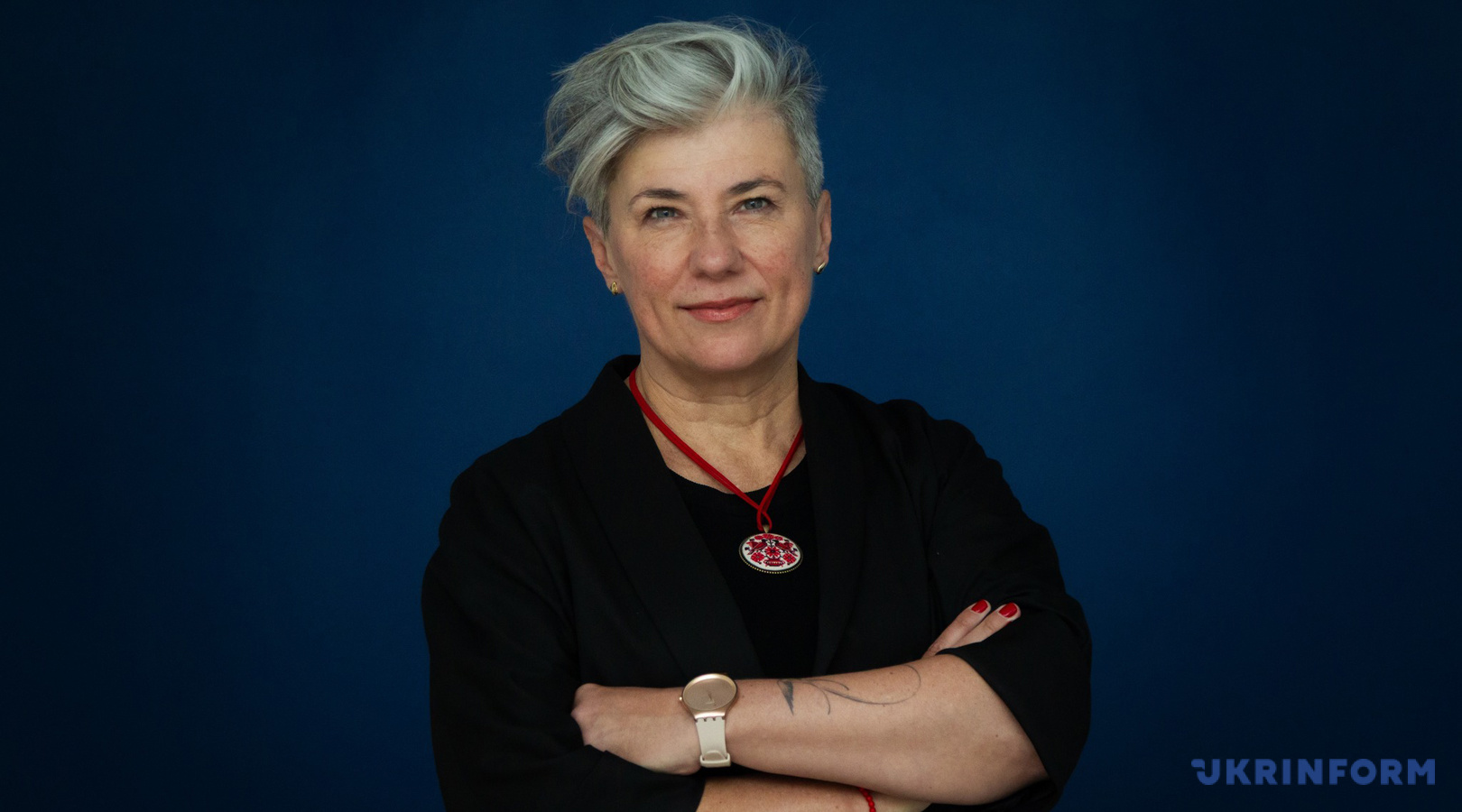
– Probably also in terms of information they help Canadians better understand what’s happening in Ukraine, the things their compatriots are going through.
– I can also add that while staying in Canada, they are also helping Ukraine a lot, spreading the word about what is happening, offering a counter-narrative in contrast to what Russia’s been spreading. They are helping very well in this sense – students at their university, employees at work… Those who arrived since 2022 can be found all across Canada.
When I was in Toronto in November, I met with a very powerful group of Ukrainians from New Brunswick where there’s never been any major Ukrainian community, but now there’s this group that’s creating something new. I’ve already heard from someone at a local university about their contribution. They already have ideas to set up a Ukrainian history course, something that universities never had. So, these people make a difference in Canada, bringing along Ukrainian history and culture. The same goes for Newfoundland. There’s never been such a strong Ukrainian community until now. Now they are joining the Plast movement, Ukrainian schools, church parishes, and they are restoring a lot of things in Canada. In many ways, they are ambassadors of Ukraine to Canada. They are also starting their own businesses, and that will also have an impact, because in this way they will improve our trade with Ukraine, playing this particular role as well.
CANADA IS NOT NAÏVE WHEN FACING RUSSIAN DISINFORMATION
– It’s wonderful that they are spreading our counter-narrative against Russian manipulation and disinformation, which targets Canadian audiences. How would you assess the current state of the institutional fight against Russian propaganda, which, as we know, is really good at amplifying certain issues that already exist in a targeted country, trying to increase the negative impact on these audiences, deepening splits?
– Canada is not naive in this regard. We realize that Russian propaganda is strong, but we’ve had active programs in Global Affairs Canada to recognize it, to address it, and to counter it. Russia’s influence is not something new, people have long been working on this problem, even before 2022. We saw how the world reacted to Crimea. Many people had the idea imposed onto them that Crimea is Russian. But we know that Crimea is part of Ukraine. We must all stand together and promote this truth. I believe Canada plays a role in this regard.
– And have there been any cases recently where Canadian nationals were exposed for spreading Russian narratives in your media space? Maybe there were cases when it was discovered and revealed that certain Canadian citizens were working for Russia?
– I can hardly give an example of any such cases that have been made public, but indeed, work to expose such people is underway. But I think it’s important for more Canadians to say that we stand with Ukraine, that we believe that Crimea is Ukrainian. This is the main thing. People in the academic circles also play a significant role. For example, if some professor makes a statement that goes beyond the generally accepted norms or if something they says bears signs of Russian propaganda, the first to speak out against that would be students themselves. I mean that, perhaps, sometimes there’s no need to have any institutionalized system of counteraction, because people themselves see what’s going on and take matters into their own hands.
RUSSIAN SPEAKERS IN UKRAINE ARE ACTIVELY LEARNING TO SPEAK UKRAINIAN
– You previously told the Ukrainian media that during your first working trip to Ukraine in 1992, you were surprised by the prevalence of the Russian language, and that your Ukrainian was even perceived as something unusual back then. How would you assess the language situation here today?
– I hear how people are now learning to speak Ukrainian. Of course, there used to be a lot of Russian- speakers in Kyiv. I remember that in the 2010s, I’d often take a train to Kamianets-Podilskyi, where I took part in excavations. And I didn’t understand what’s happening but I witnessed this several times. So people would get on the train and go on speaking Russian to each other. But about an hour from Kyiv, all of a sudden everyone switches to Ukrainian. It seems like it was generally accepted that in Kyiv, people speak Russian, as some kind of “official” language, but closer to home people feel free and go back to Ukrainian. But you don’t see that anymore.
Now I see the opposite: people really try to speak Ukrainian. I might have spoken about this already with some newspaper, but I remember how I was in a shop and some man approached me, realizing that I was a foreigner. And I do have that slight Canadian accent. So, he said my Ukrainian was very good. And I turned to him and also cheekily noted: “Yours is really good, too.” Then he blushed: “Thanks a lot, it’s very important for me. My whole family were Russian speakers but now I am learning. It’s not easy, but I’m learning, and so are my grandfather and parents.” So, I understood that people work hard because it’s not easy. Whatever your native language is – be it Ukrainian or Russian – you have to go an extra mile to just switch to another language. However, I see that people are trying. As for the language itself, I understand that I used words that were not common here before. But now I start hearing such words such as “marynarka” or “techka”. Indeed, there are words that no one used at that time. Well, perhaps my grandmother’s peers. But now that older Ukrainian language, my language, is gradually coming back.
– Many language issues have their roots in our history, which is very important to us, and part of that tragic history is the Holodomor. Last year, the Canadian government announced $15 million in assistance to complete the second phase of the National Museum of the Holodomor. At what stage is this project now? Have the funds already been provided, and does Canada plan to monitor their utilization?
– $10 million has already been provided. We will first focus on supporting the establishment of the governance structure that was mandated by Ukrainian legislation. We also know that Ukraine has suspended construction, and we respect and understand this decision. But we want to prepare everything so that at a certain point, when time is right, Ukraine could restart building this international museum We agree with Ukraine that a museum is very important, but a museum is not just a building. It is what’s in it. This means having a site for research, the right archives, the opportunity for scholars to work there, including international ones. So, we help Ukraine to this end.
– It’s really symbolic.
– It is.
– By the way, you spoke of your tattoo, an important and exciting gesture that has already attracted a lot of public attention. Please tell us about your “Evil Mavka”, what does it mean to you?
– About a year ago, I was at a conference, meeting with people who support the “Evil Mavka” movement. Of course, we couldn’t jeopardize safety of those women from the occupied territories, but we met with people who support them. So that made such a strong impression on me. Women stay there and remain so strong… They draw such a symbol on their arms as a sign of support. And so, full of passion, I publicly declared at that event that I go further than just drawing one on my own arm by getting a tattoo that will stay with me for the rest of my life.
A few months go by, and I completely forgot about it, but a woman reminded me of that. I told her that she was right. So next morning I got that tattoo and shared this on social media. I kept my promise. In this way, I got the opportunity to talk a little more about this movement and how important it is to support these women.
It was very interesting to learn from a colleague, our Canadian ambassador to Ecuador, that on the Vyshyvanka Day in one local community, he saw my photo with the tattoo. But of course, it’s not the photo that was important, it was all the information that came along about who the “Evil Mavkas” are and why they should be supported. So, women in Ecuador decided to support Ukraine – precisely because they wanted to support women from this organization. So, it’s important that in this way they understood that Ukraine needs support. For some, the “Evil Mavkas” will be the driving force, and for some it could be something else, but it is important to talk about Ukrainians, including through films or books.
AVERAGE CANADIANS, NGOs ARE ACTIVELY HELPING UKRAINE
– What most foreign politicians coming to Ukraine admire about the Ukrainians is their resilience. That’s the word they use very often. But many here understand that part of being able to maintain that resilience is understanding that you have predictable, continued support from international partners in the ongoing fight against the onslaught. And we’re really grateful to Canada for that support that’s been maintained throughout the years, since the very beginning of the invasion, and we all hope that that support will remain in place, and that your Canadian voices will be heard by all international actors so that they stay united in helping us repel the invasion and prevail in this war. So, thank you very much for your presence, for being with us and for having this conversation today.
– Thank you. We spoke about Canadian government assistance, but I would also like to mention all the Canadians who form organizations, NGOs without Canadian government support to help Ukraine. And I have to mention some of them. There’s the Maple Hope Foundation. I mentioned the women I met yesterday, who had lost their children fighting on the frontline, and they are now being regrouped, becoming a support system for other women in their situation. Many of them are being trained to become psychologists. We also have Canadian NGOs, like Mriya Aid, that are here to provide more support to sapper training and other activities. But there are many, many organizations like that. There’s the Canadian-Ukrainian Foundation who sends Canadian doctors to come here and work alongside Ukrainian doctors. Canadians are supporting Ukraine, and it’s not just people of Ukrainian heritage. There are many that I meet, like the many firefighters that have come here to provide aid on their off time, their vacation time. They come to Ukraine to train with Ukrainian firefighters in search and rescue. I’ve met Canadian dogs coming here to help train various service dogs in different areas.
I just want to end there because what I see in Canadians is that help comes not just through the government of Canada, which plays a very important leadership role, absolutely, in all spheres, not just funding, but also diplomacy. So Canadian themselves provide that support. Just to circle back to why many of them are doing this is because they met the Ukrainians who have come there from 2022, and they’ve had an influence on them, and they’ve understood their plight, and they want to help in many ways, in any way they can.
So it’s supporting the Ukrainians who found themselves in Canada, but also supporting Ukrainians who are here, who need international support, and Canada wants to be part of that because Canada and Canadians are with Ukraine.
Glory to Ukraine!
– Glory to the Heroes!
Ievgen Matiushenko, Kyiv
Photos: Kyrylo Chubotin

